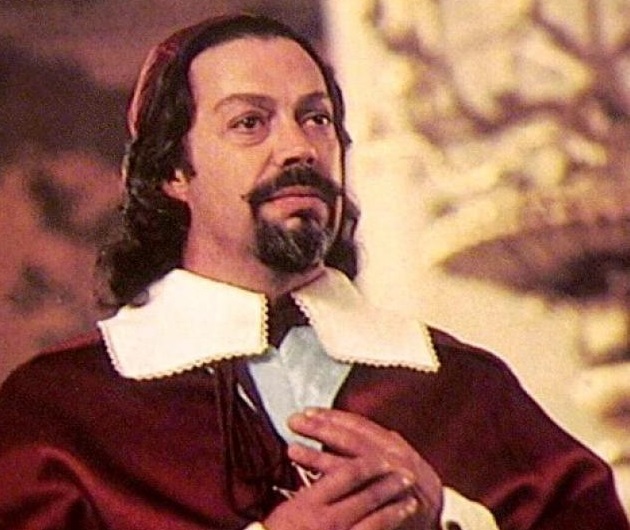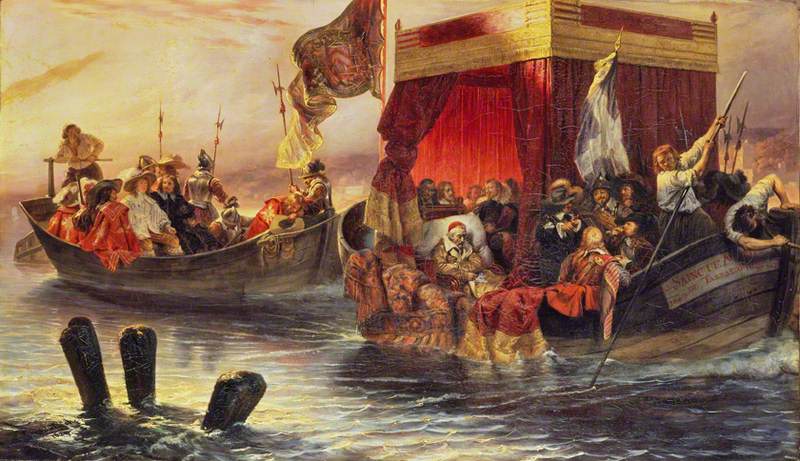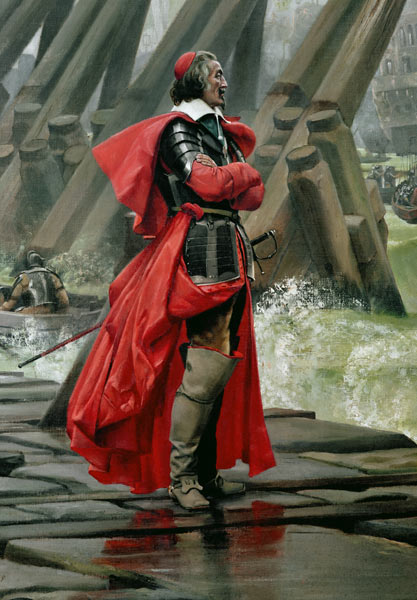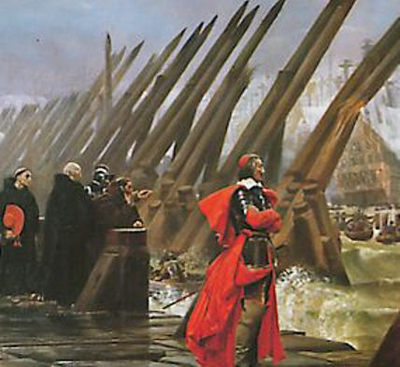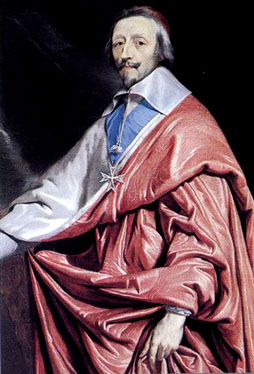Cardinal Richelieu, also known as Armand-Jean du Plessis de Richelieu, was a French clergyman, nobleman, and statesman who served as the Chief Minister of King Louis XIII of France from 1624 until his death in 1642. He was a key figure in the history of France, playing a central role in the country's political, military, and cultural development during the early modern period.
Richelieu was born in 1585 in Paris, France, into a family of minor nobles. He was educated at the College de Navarre and later at the Sorbonne, where he studied theology, philosophy, and law. After completing his studies, he entered the clergy and quickly rose through the ranks, becoming a bishop in 1607 and a cardinal in 1622.
As Chief Minister, Richelieu's primary goal was to strengthen the power of the monarchy and centralize the government. He implemented a series of administrative and economic reforms that helped to modernize the country and increase the power of the monarchy. He also sought to expand France's territorial borders and increase its influence on the European stage.
One of Richelieu's most significant achievements was his successful efforts to curb the power of the nobility. He reduced the privileges of the aristocracy and made it easier for commoners to rise through the ranks of government. He also sought to eliminate the influence of foreign powers on French politics, particularly the Habsburgs, who were the dominant force in Europe at the time.
Richelieu was also a patron of the arts and a key figure in the development of French literature and drama. He supported the work of writers such as Molière and Racine, and helped to establish the French Academy, which was dedicated to promoting the French language and culture.
Despite his many accomplishments, Richelieu was not without his detractors. His strong centralization of power and his efforts to curb the power of the aristocracy were not popular with many of the nobles, and he faced numerous attempts on his life and plots to overthrow him.
Despite these challenges, Richelieu remained an influential figure in French politics until his death in 1642. His legacy has been the subject of much debate, with some seeing him as a visionary statesman who helped to modernize France, while others view him as a ruthless and power-hungry politician who was willing to do whatever it took to maintain his own power. Regardless of one's perspective, there is no denying that Richelieu was a significant and influential figure in French history, and his impact on the country's political, cultural, and artistic development continues to be felt today.
